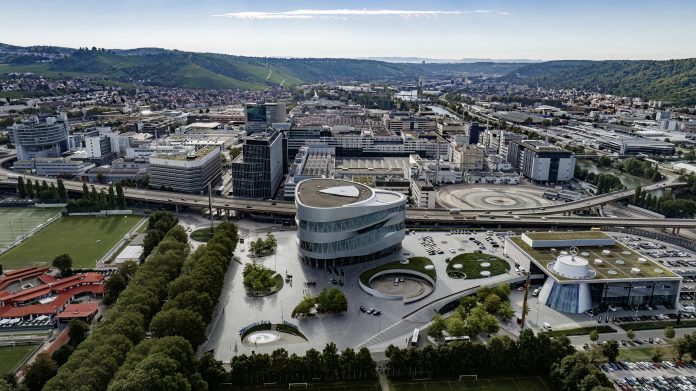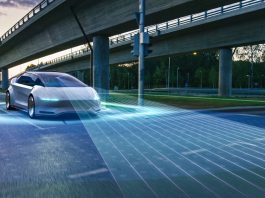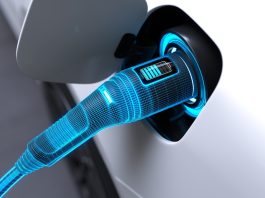Mercedes-Benz has taken a significant leap in EV battery technology development with the inauguration of its eCampus at the company’s Stuttgart-Untertürkheim headquarters.
The Mercedes-Benz eCampus serves as a hub for advanced research and development in battery and cell technology, aiming to drive innovation and reduce battery costs by over 30% in the coming years.
Ola Källenius, Chairman of the Board of Management of Mercedes-Benz Group AG, emphasised the importance of the eCampus in the company’s sustainable business strategy.
“The opening of the Mercedes-Benz eCampus marks an important step in our sustainable business strategy. It is our ambition to also play a leading technological role in electric mobility. The eCampus brings us closer to this goal,” Källenius stated.
Aiming for cutting-edge EV battery technology
The Mercedes-Benz eCampus is dedicated to advancing cell chemistry and optimising production processes to create high-performance battery cells with ‘Mercedes-Benz DNA’.
The facility’s comprehensive approach spans from developing new cell chemistries to industrial-scale cell production, testing, and certification of complete battery units.
The goal is to enhance energy density, charging capability, and overall performance while significantly reducing production costs.
Innovations in cell chemistry
Mercedes-Benz is exploring various cell chemistries, including lithium-ion cells with high-energy anodes based on silicon composites and innovative cobalt-free cathode chemistries.
Solid-state battery technology is also a key focus. These advancements aim to increase energy density up to 900 Wh/l, facilitating faster charging and improved performance.
The knowledge gained from these developments will be integrated into the series production of future Mercedes-Benz batteries.
The significance of mastering cell chemistry was demonstrated by the VISION EQXX technology programme, which achieved record-breaking distance and efficiency for electric vehicles thanks to pioneering cell chemistry.
Industrial cell production and testing
The eCampus will begin operations in two stages. The initial phase includes a 10,000-square-metre factory equipped with state-of-the-art production facilities, known as the ‘Industrial Cell Lab’, capable of manufacturing and testing battery cells on an industrial scale.
This facility can produce tens of thousands of cells annually for developing future battery generations.
The production process, involving automated and manual steps, covers all aspects of battery cell manufacturing, from electrode production to cell assembly and finishing.
Mercedes-Benz aims to master both the chemical composition and the industrial manufacturing process of cells to ensure high quality and cost-effectiveness.
The eCampus complements existing cell laboratories, such as the ‘Chemistry Lab’ for developing novel cell chemistries and the ‘Flexible Cell Lab’ for testing automotive pouch cells.
eCampus expansion and future developments
The second stage of the eCampus will be completed by the end of the year, featuring a state-of-the-art test and proving centre with a battery ramp-up factory for product and process development. This facility will ensure the maturity of large-scale industrial production.
Towards a circular economy
Mercedes-Benz’s eCampus is a cornerstone of the company’s sustainable business strategy, aiming for a net carbon-neutral fleet by 2039.
The company focuses on circular design, value retention, and closing the loop in battery technology.
The ‘Design for Circularity’ approach considers the entire battery value chain from development to production.
Mercedes-Benz is committed to using renewable energy in its production processes and has established a battery recycling factory in Kuppenheim, Germany.
The new eCampus building itself embodies sustainability, featuring recycled concrete foundations, photovoltaic systems, greened roof areas, and efficient heat and cooling systems.
Mercedes-Benz aims to cover more than 70% of its production energy requirements with renewable energy by 2030 and achieve 100% renewable energy usage by 2039.
Robert Habeck, German Federal Minister for Economic Affairs and Climate Action, highlighted the importance of innovative and sustainable batteries for the automotive industry’s transformation.
“High-performance batteries comprise the heart of the electrification of transport – and are the key to the successful transformation of the automotive industry.
“The demand for innovative and sustainable batteries will continue to rise sharply in Europe in the coming years,” Habeck stated.
The Mercedes-Benz eCampus represents a significant step forward in battery technology, reinforcing the company’s commitment to sustainability and innovation in electric mobility.









